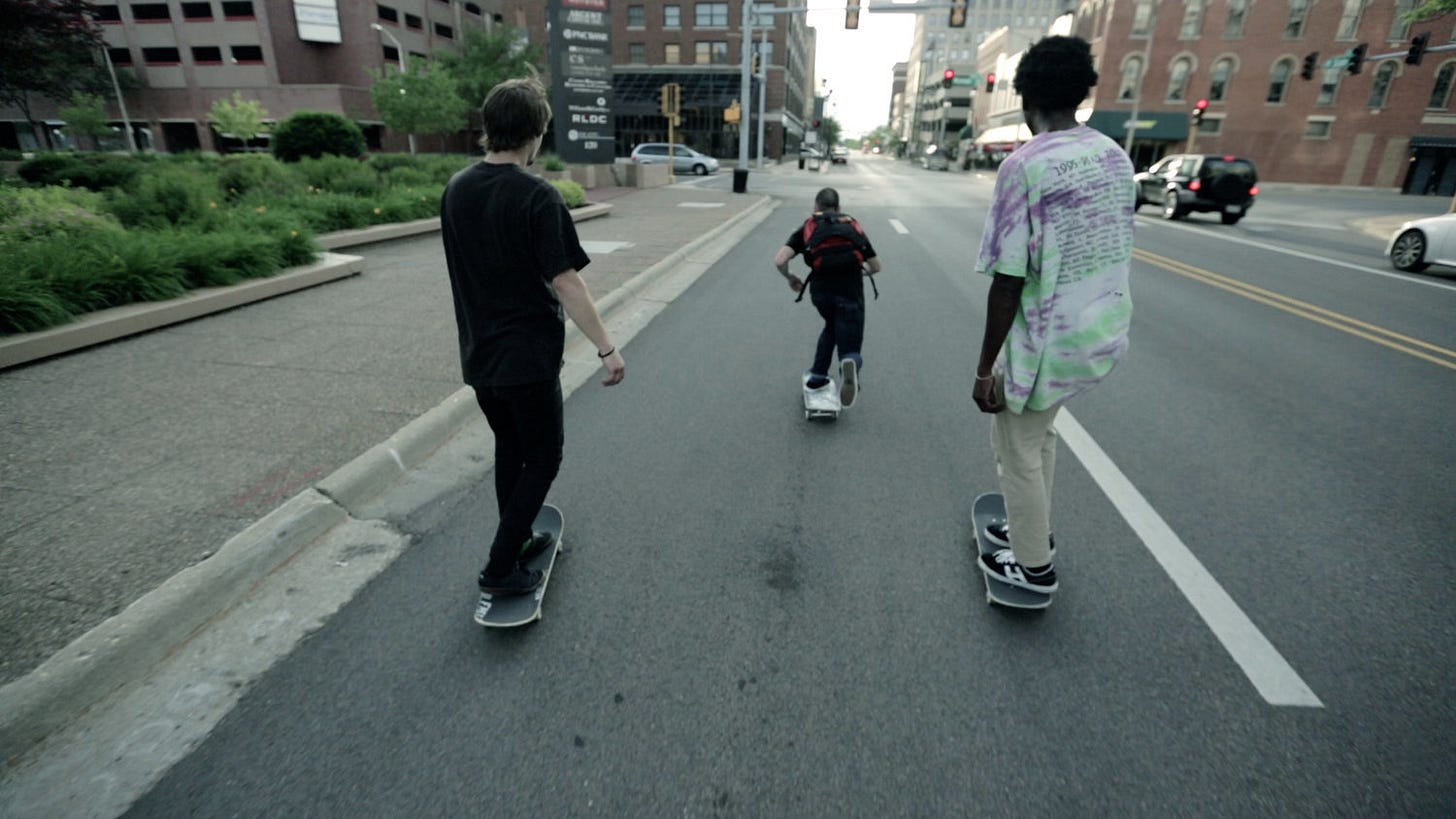Heartbreakingly honest. A therapy session of a film. It’s so humbling, at least if you come from a good household. Above all, it seems to be a film about confronting issues head-on; not letting excuses get in the way of the consequences your irresponsible actions might cause, as well as facing struggles and realizing you can’t change the past, only find ways to cope. How one does that depends. It could be skateboarding or making a film, but at the end of the day, it’s through self-expression and being around people you can relate to.
Minding the Gap starts as a feel-good look into how these subjects with childhood trauma have found their escape in skateboarding, and ends with you feeling such deep sympathy (or pity, depending on how you view it) for these flawed, vulnerable people. Some are more self-aware or delusional than others but what they share is the feeling of being lost and insecure about their identities, especially as they’re still in the stages of growing up, in one way or another. They revel in the attitude of individualism but by the time the realization of maturity creeps up on them, they have to make more “adult” choices: caring for a child, moving away, finding a job, reconnecting with relatives. What quickly becomes clear, though, is that just because you find yourself in adulthood doesn’t guarantee you’ll stay in the right lane. And for these subjects, this is even more terrifying considering the track record of those who brought them up or neglected to do so.
Bing Liu’s camera captures the spirited freedom of these subjects just as well as the tragedy. He’s a real talent and doesn’t let his connection to the subjects get in the way of telling the story in the most three-dimensional way possible. It’s because of this transparency that the film feels extremely grounded all throughout. The way it’s shot can look both elegant — the shots of Bing interviewing his mother, the skating montages — and gritty — the backyard hangouts, the rundown homes — always feeling real and of the moment. Tears aren’t necessary to draw out the emotion of these stories, and not relying on that is something that I feel might be difficult for a filmmaker with not many credits to their name to realize. This is a case where everything — even the very poignant billboards — speaks for itself and it’s fortunate that the subjects were so open about their lives, even if they were hiding behind masks at times.
You don’t have to pretend you’re not scared / Everyone else is just as terrified as you
1/13/25



